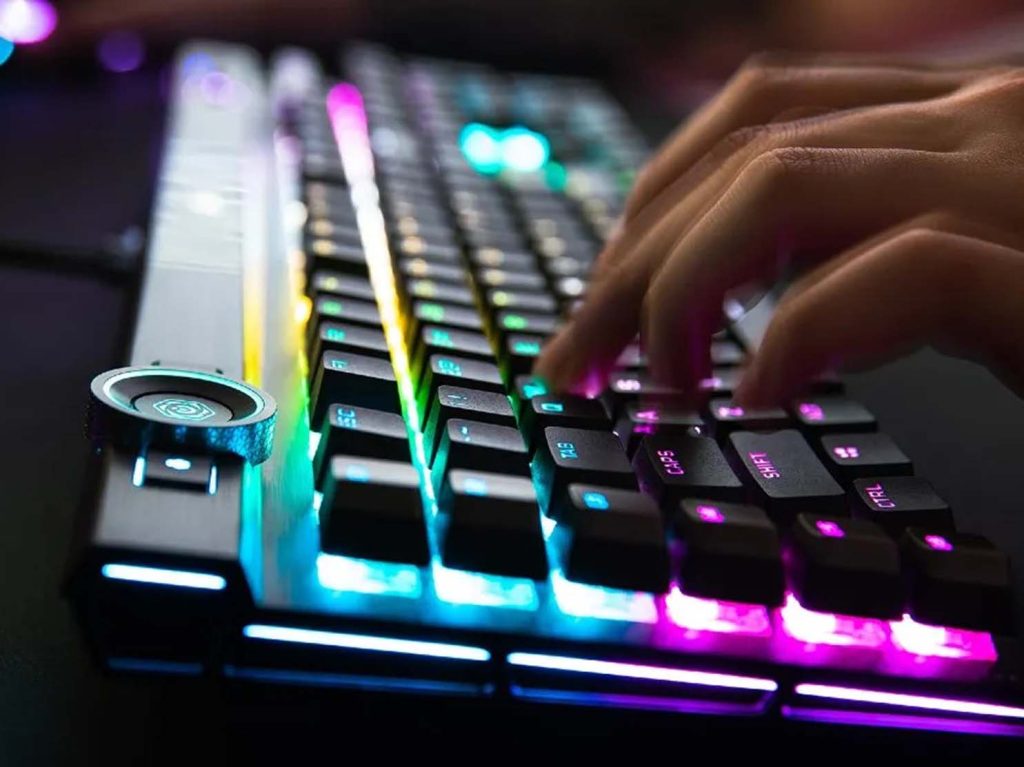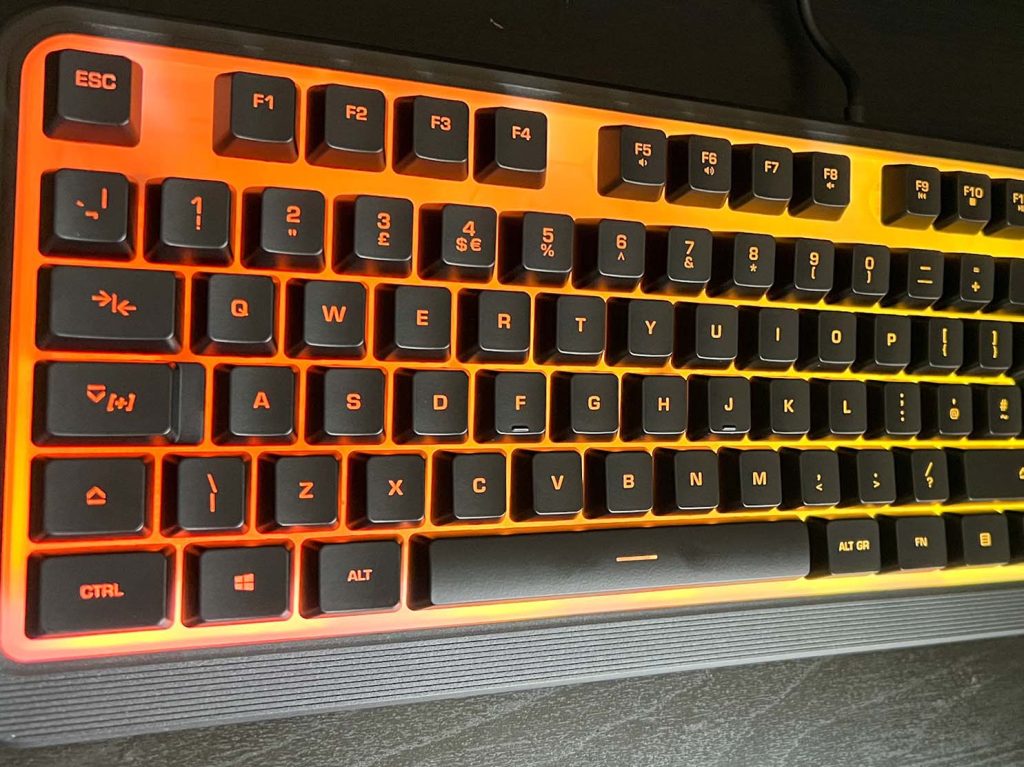Keyboards are one of the primary input devices for computers and play a crucial role in user experience. When it comes to choosing a keyboard, two main types dominate the market: mechanical and membrane keyboards. Each type has its own set of advantages and disadvantages, catering to different preferences and needs.
Mechanical Keyboards:

Pros:
1. Tactile Feedback: Mechanical keyboards feature individual mechanical switches beneath each keycap, providing tactile feedback and audible clicks when pressed. This tactile sensation can improve typing accuracy and comfort for many users.
2. Durability: Mechanical keyboards are known for their robustness and longevity. The mechanical switches are designed to withstand millions of keystrokes, making them ideal for heavy typists or gamers who demand reliability from their peripherals.
3. Customization: Mechanical keyboards offer a high degree of customization. Users can choose from various switch types, each with different actuation forces and tactile feedback levels, to suit their typing preferences and gaming style.
4. Typing Experience: Many enthusiasts and professionals prefer mechanical keyboards for their superior typing experience. The combination of tactile feedback, key travel distance, and actuation force can result in a satisfying and responsive typing feel.
Cons:
1. Price: Mechanical keyboards tend to be more expensive than membrane keyboards due to their intricate construction and premium materials. Entry-level mechanical keyboards may come at a higher cost compared to their membrane counterparts.
2. Noise: The audible click produced by mechanical switches can be disruptive in quiet environments or shared workspaces. While some users enjoy the tactile feedback, others may find the noise distracting or annoying.
3. Weight and Size: Mechanical keyboards are often bulkier and heavier than membrane keyboards, which may not be ideal for users with limited desk space or those who frequently travel with their keyboards.
Membrane Keyboards:

Pros:
1. Affordability: Membrane keyboards are generally more affordable than mechanical keyboards, making them a budget-friendly option for users who prioritize cost savings.
2. Silent Operation: Unlike mechanical keyboards, membrane keyboards use rubber dome switches that provide a quieter typing experience. This can be advantageous in quiet environments or when typing late at night without disturbing others.
3. Slim Profile: Membrane keyboards are typically thinner and lighter than their mechanical counterparts, making them more portable and space-saving, especially for users with limited desk space or those who travel frequently.
4. Low Maintenance: Membrane keyboards require minimal maintenance due to their simple design. The absence of individual mechanical switches means there are fewer components that can wear out over time, resulting in lower maintenance costs.
Cons:
1. Lack of Tactile Feedback: Membrane keyboards often lack the tactile feedback provided by mechanical switches, which can result in a less satisfying typing experience for some users. The mushy feel of rubber dome switches may lead to decreased typing accuracy and comfort over extended use.
2. Durability: While membrane keyboards are generally durable, they may not withstand heavy use as well as mechanical keyboards. The rubber dome switches are prone to degradation over time, leading to a decrease in typing responsiveness and reliability.
3. Limited Customization: Unlike mechanical keyboards, membrane keyboards offer limited customization options. Users typically have fewer choices in terms of key switch types and customization features, limiting their ability to tailor the keyboard to their specific preferences.
Both mechanical and membrane keyboards have their own set of pros and cons, catering to different user preferences and requirements. While mechanical keyboards excel in tactile feedback, durability, and customization, they come at a higher price point and may be noisier than membrane keyboards. On the other hand, membrane keyboards offer affordability, silent operation, and a slim profile, but may lack the tactile feedback and customization options desired by some users. Ultimately, the choice between mechanical and membrane keyboards depends on individual preferences, budget constraints, and intended usage scenarios.
Popular mechanical and membrane keyboards
Popular Mechanical Keyboards:
1. Corsair K95 RGB Platinum XT: This mechanical keyboard is highly favored by gamers. It features Cherry MX mechanical switches, providing durability and excellent tactile feedback. Additionally, it boasts customizable RGB backlighting and a set of dedicated macro keys for added gaming functionality.
2. Logitech G Pro X Mechanical Gaming Keyboard: Designed for esports gamers, this high-performance mechanical keyboard offers customizable GX switches. Users can choose between linear, clicky, or tactile switches based on their preferences. It also features a compact design and a detachable USB-C connection for portability and versatility.
3. Ducky One 2 Mini: The Ducky One 2 Mini is a compact mechanical keyboard beloved by keyboard enthusiasts and typists. It utilizes high-quality mechanical switches for exceptional typing feel and durability. The keyboard also offers programmable key remapping and various backlighting effects to cater to individual preferences.
Popular Membrane Keyboards:
1. Apple Magic Keyboard: This popular membrane keyboard is designed by Apple, known for its sleek and minimalist design. It features membrane keyboard technology, providing smooth key operation and quiet typing experience. Additionally, it comes with a built-in rechargeable battery and Bluetooth connectivity, making it suitable for wireless use with Apple devices.
2. Microsoft Surface Keyboard: The Microsoft Surface Keyboard is a stylish membrane keyboard designed specifically for Surface devices. It employs membrane keyboard technology for a comfortable key layout and stable typing feel. The keyboard features an elegant aluminum casing and Bluetooth connectivity, compatible with various devices.
3. Logitech K780 Multi-Device Wireless Keyboard: This multi-device membrane keyboard is ideal for office and home use. It utilizes membrane keyboard technology with comfortable keys and stable typing feel. The keyboard also features a built-in stand to accommodate multiple devices and supports wireless connectivity for seamless switching between devices.
These are brief introductions to some popular mechanical and membrane keyboards, each with its unique features and advantages to cater to different user preferences and needs.
If you are interested in these keyboards, you can look through my next blog.